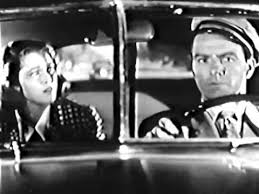 |
You'd think George could have worn
something other than a stained
t-shirt for such an occasion. |
It's tough to choose what could be more shocking so far this week. The revelation that Bobby Riggs threw his 1973 tennis match with Billie Jean King to settle a 100-grand gambling debt to the Mob? That the New York Attorney General is suing Trump University for scamming its students? George Zimmerman's weekend meet & greet at the factory that manufactured the gun that killed Trayvon Martin? Or the morning news anchors still jabbering over Miley Cyrus' performance on MTV two days after the fact?
Being a self-centered New Yorker, I'm going with the kerfuffle involving the billionaire dean/bursar/cheerleader. USA Today reports:
 |
| As long as they don't teach hair-styling. |
New York's attorney general sued Donald Trump for $40 million Saturday,
saying the real estate mogul helped run a phony "Trump University" that
promised to make students rich but instead steered them into expensive
and mostly useless seminars, and even failed to deliver promised
apprenticeships.
If that's the basis of the lawsuit, then Attorney General Eric Schneiderman should start lining up every institute of higher learning in the state. Having gone on college tours with my daughter, I can assure you every school makes that same pitch and, judging by the unemployment rates, it's all a bunch of balderdash. I was talking to someone whose niece graduated with a degree in history. Over a year later, she's a telemarketer. Lesson: Those who do not learn from history are doomed to make cold calls to people who don't want what they're selling.
I initially thought that Trump University was an online school that would turn you into the next big-mouth real estate mogul with self-esteem issues. Courses like:
THE RIGHT BEGINNING: Making sure your father is a real estate mogul so you can inherit
 |
"I've got a gown, so I know what I'm
talking about." |
the business from him.
THE NAME'S THE GAME: Take the easy way out by allowing any developer to slap your name on whatever he wants to build --for a fee!
SHINY IS GOOD: Brass and black marble -- the classy touch to any building.
BILLS? WHAT BILLS?: Saying "So sue me!" like you mean it.
As it turns out, there was no real Trump University, either on land, sea or cyberspace. It was, in fact, a three-day seminar. You know, the kind that self-styled gurus hold in hotel conference rooms where you can learn to realize any wish you have, as long as your credit card hasn't expired. Continuing from USA Today:
Schneiderman's lawsuit covers complaints dating to 2005 through 2011.
Students paid between $1,495 and $35,000 to learn from the Manhattan
mogul who wrote the best seller, "Art of the Deal" a decade ago followed
by "How to Get Rich" and "Think Like a Billionaire."
Thirty-five thousand dollars! You can currently buy used copies of each of those books on Amazon for one cent each and get the same information. Thinking like a billionaire apparently means convincing suckers to outrageously overpay for what could have set them back three cents (plus postage). But wait, there's more!
Attorney General Eric Schneiderman says many of the 5,000 students who
paid up to $35,000 thought they would at least meet Trump but instead
all they got was their picture taken in front of a life-size picture of
"The Apprentice" TV star.
You can bet your last can of orange-spray tan that, for some of these people, meeting the great man himself was the whole raison d'etre for shelling out their life savings. Did these these genius-wannabes not know that their idol is repelled by hobnobbing with the hoi polloi unless they're waving TRUMP FOR PRESIDENT placards?
Still, 35,000 bucks to get the lowdown from one of Trump's "handpicked" instructors -- guys who know the ins and outs of the real estate world -- that's gotta pay off big somewhere down the line, right? We turn to Business Insider for the answer:
 |
The code being: Leave the
shareholders on the hook
for the dough. |
...many [instructors] came directly to Trump
University from other seminar companies — where they worked as
motivational speakers or sales representatives -- or employment having
little if anything to do with real estate investment. Trump University was also aware that some
of its instructors and mentors who had been investing in real estate
had filed for Chapter 7 bankruptcy protection shortly before coming to
work at Trump University, belying any claims of success as real estate investors.
Since various Trump businesses have filed bankruptcy at least four times, it looks he hired the right people. So what's the problem, Mr. Attorney General?
What is the takeaway from this, the latest in The Zany Adventures of Donald Trump? You can run a questionable "school" while driving your students straight into the poorhouse, go bankrupt instead of paying your bills, show up to host a game show once a week, pretend to run for president in order to plug aforementioned TV show and -- this is the worst of it -- continue to be taken seriously by news anchors all over the dial.
This guy rivals The Shadow for the ability to cloud men's minds. Forget the whole "financial genius" jazz." His next seminar should be "Fooling All of the People All of the Time for Fun and Profit." Now that I'll pay for. As long as I don't have to use that spray tan.
********************













































